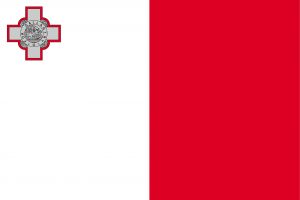Difference between revisions of "Language/Maltese/Grammar/Adverbs"
m (Quick edit) |
m (Quick edit) |
||
| Line 1: | Line 1: | ||
<span pgnav> | |||
{| class="wikitable pg_template_nav" | |||
|[[Language/Maltese/Grammar/Comparatives-and-Superlatives|◀️ Comparatives and Superlatives — Previous Lesson]] | |||
|[[Language/Maltese/Vocabulary/Fruits-and-Vegetables|Next Lesson — Fruits and Vegetables ▶️]] | |||
|} | |||
</span> | |||
{{Maltese-Page-Top}} | {{Maltese-Page-Top}} | ||
| Line 155: | Line 162: | ||
{{Maltese-Page-Bottom}} | {{Maltese-Page-Bottom}} | ||
<span pgnav> | |||
{| class="wikitable pg_template_nav" | |||
|[[Language/Maltese/Grammar/Comparatives-and-Superlatives|◀️ Comparatives and Superlatives — Previous Lesson]] | |||
|[[Language/Maltese/Vocabulary/Fruits-and-Vegetables|Next Lesson — Fruits and Vegetables ▶️]] | |||
|} | |||
</span> | |||
Revision as of 22:44, 2 April 2023
| ◀️ Comparatives and Superlatives — Previous Lesson | Next Lesson — Fruits and Vegetables ▶️ |
Adverbs are an essential part of speech in any language. In Maltese, adverbs are used to describe verbs, adjectives, and other adverbs. In this lesson, we will learn how to form and use adverbs in Maltese.
Forming Adverbs in Maltese
Adverbs in Maltese are formed in various ways. Some adverbs are derived from adjectives, while others are formed by adding specific suffixes to nouns or verbs. Here are some common examples:
Adverbs Derived from Adjectives
To form an adverb from an adjective in Maltese, you generally need to add the suffix "ament" to the adjective. For example:
| Maltese | Pronunciation | English |
|---|---|---|
| qawwi | /kaw-wi/ | strong |
| qawwiment | /kaw-wi-ment/ | strongly |
| sinjuri | /sin-yu-ri/ | certain |
| sinjuriment | /sin-yu-ri-ment/ | certainly |
| wisq | /wisk/ | much |
| wisqament | /wisk-a-ment/ | much |
Some adverbs in Maltese are formed by adding the suffix "-ment" directly to the root of the adjective. For example:
| Maltese | Pronunciation | English |
|---|---|---|
| biżżejjed | /biz-zejd/ | too |
| għalqaqment | /al-kaq-ment/ | closely |
| saħħaqment | /sa-haq-ment/ | loudly |
Adverbs Formed from Nouns or Verbs
In Maltese, some adverbs are formed by adding specific suffixes to nouns or verbs. Here are some common examples:
| Maltese | Pronunciation | English |
|---|---|---|
| frott | /frott/ | suddenly |
| minnufija | /min-noo-fi-ya/ | in a hurry |
| sorad | /so-rad/ | in a row |
| bil-mod | /bil-mod/ | in style |
| fil-fond | /fil-fond/ | basically |
Using Adverbs in Maltese
Now that we have learned how to form adverbs in Maltese, let's look at how to use them in sentences. Adverbs can be used to modify verbs, adjectives, and other adverbs. Here are some examples:
Modifying Verbs
Adverbs are commonly used to modify verbs in Maltese. For example:
- Il-mużika qiegħda tonqos wisqament. (The music is playing too loudly.)
- Int żgħira verżjoni ta' dak il-film għadu ma pproduċa xejn. (You are still not producing any small version of that movie.)
- Inħossni kbirment warajk. (I feel strongly for you.)
Modifying Adjectives
Adverbs can also be used to modify adjectives in Maltese. For example:
- Dawn il-ħwejjeġ huma ħiniek, għalhekk jistgħu jkunu interessanti adattarhom skont il-ħtiġijiet tiegħek. (These things are your thing, so they can be interestingly adapted to your needs.)
- Fitrekk, ġimgħa qawwija. (For you, a strong week.)
- Il-ħekk, pensjoni sinjuri. (Of course, a certain pension.)
Modifying Other Adverbs
Finally, adverbs can be used to modify other adverbs. For example:
- Mallu bil-mod wisqament jaħtajna. (They gave us too much with style.)
- Bla dubju mijiet ta' raġel wisqament kkonvinċenti. (Without doubt, hundreds of too convincing men.)
- Qatt ma kelli hawn aktarċiex minn dak, wisqament. (I never had more than that, too much to cope with.)
Conclusion
In conclusion, adverbs are a vital part of the Maltese language. They allow you to modify verbs, adjectives, and other adverbs, giving you a more precise way of expressing yourself. By learning how to form and use adverbs in Maltese, you will be able to communicate more effectively in this beautiful language.
Other Lessons
- Questions
- How to Use Be
- Indefinite Articles in Maltese
- Imperative Mood
- Comparatives and Superlatives
- Definite Articles in Maltese
- Past Participle in Maltese
- Possessive Case in Maltese
- Pronouns
- Prepositions
Sources
| ◀️ Comparatives and Superlatives — Previous Lesson | Next Lesson — Fruits and Vegetables ▶️ |
